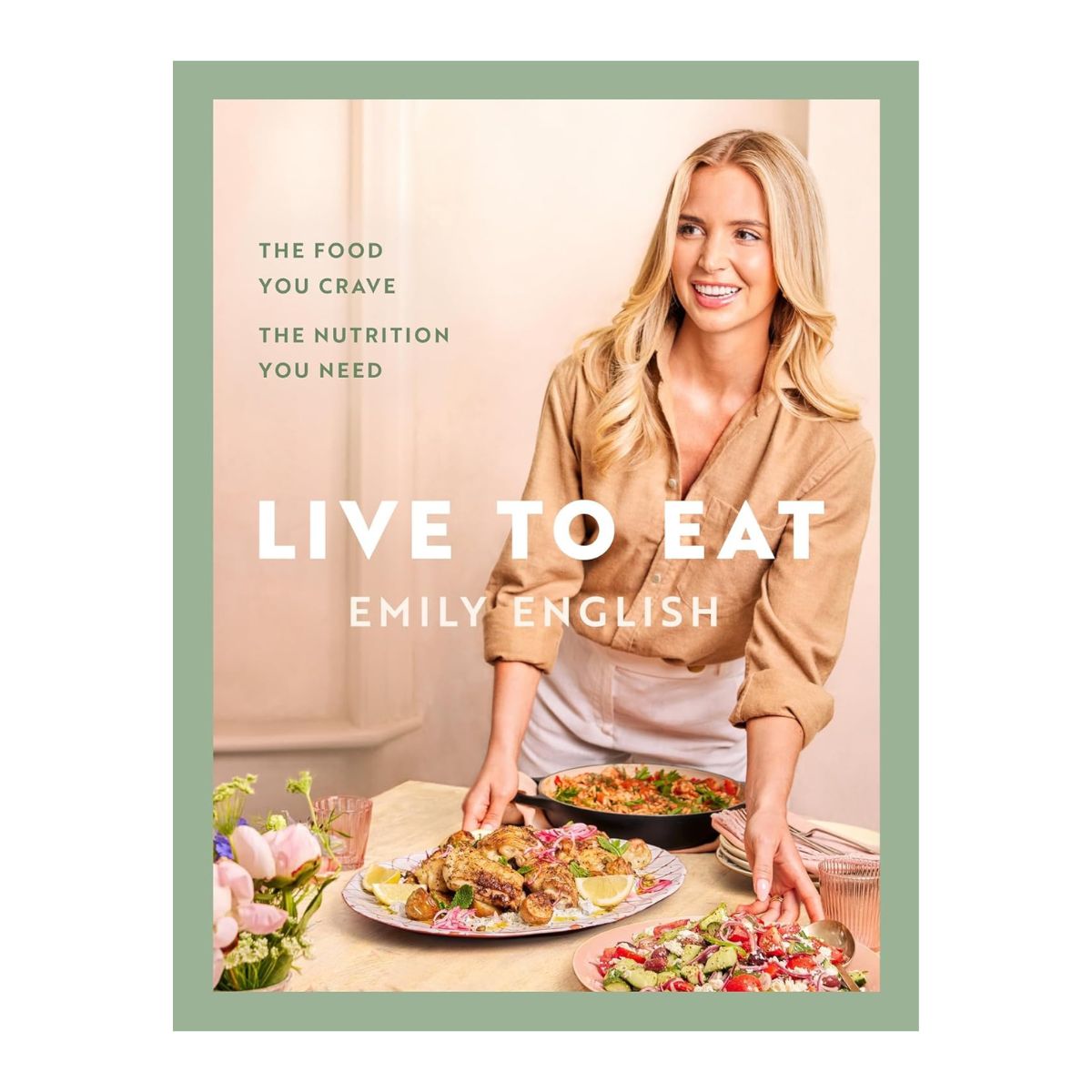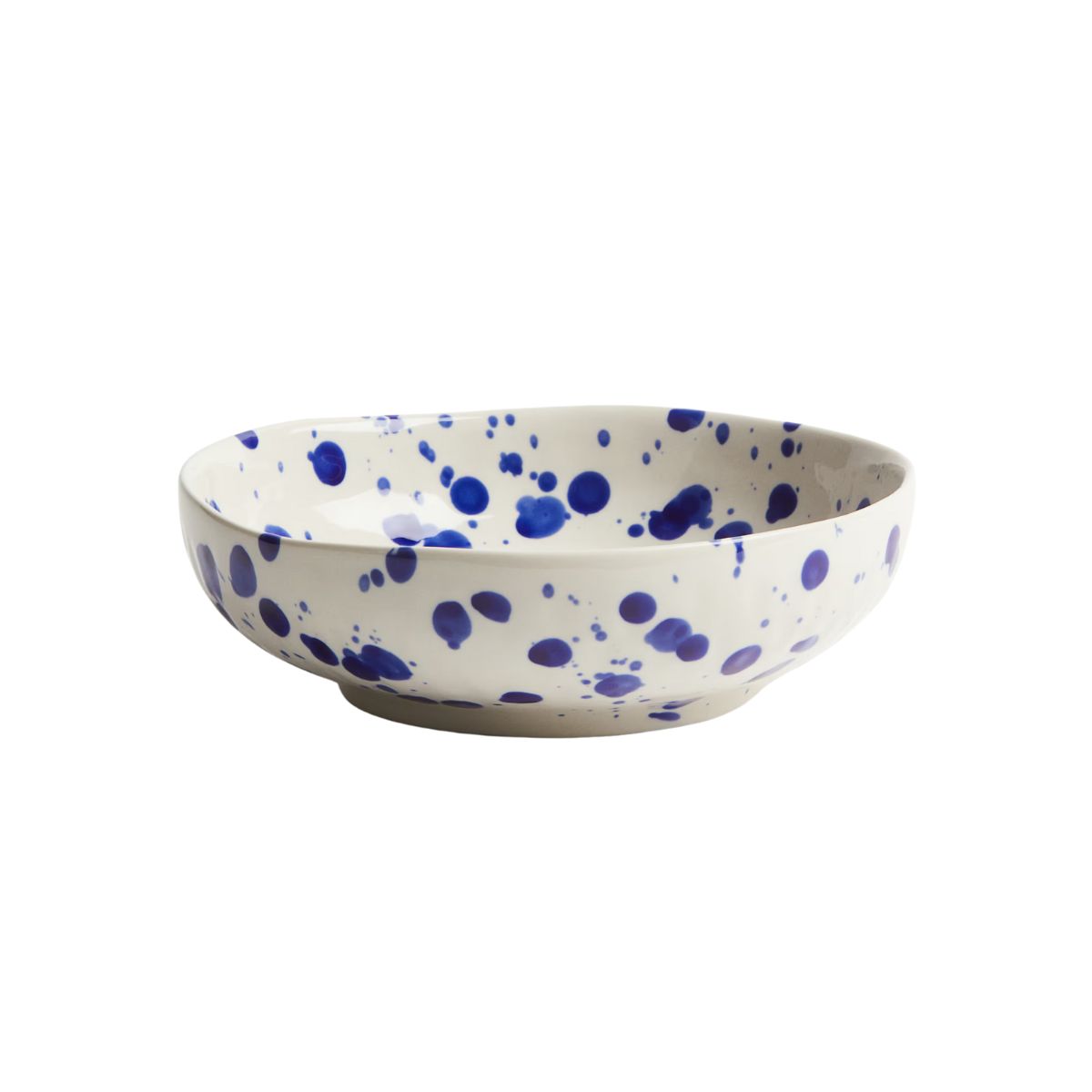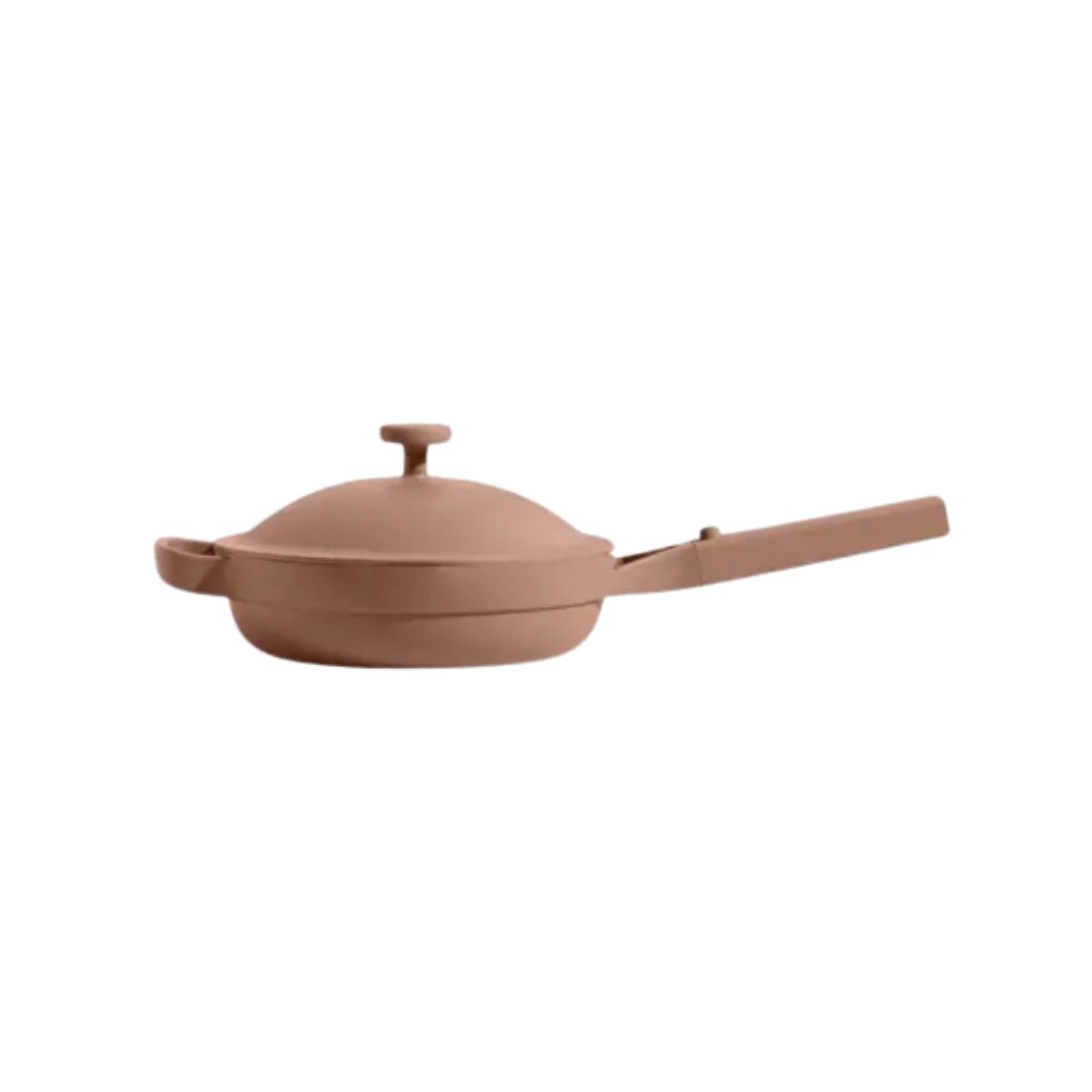I’ve Switched Simple Carbs for Protein, Healthy Fats and Wholegrains – and Can’t Believe How Much Better I Feel
Simple changes really can add up to a huge difference.
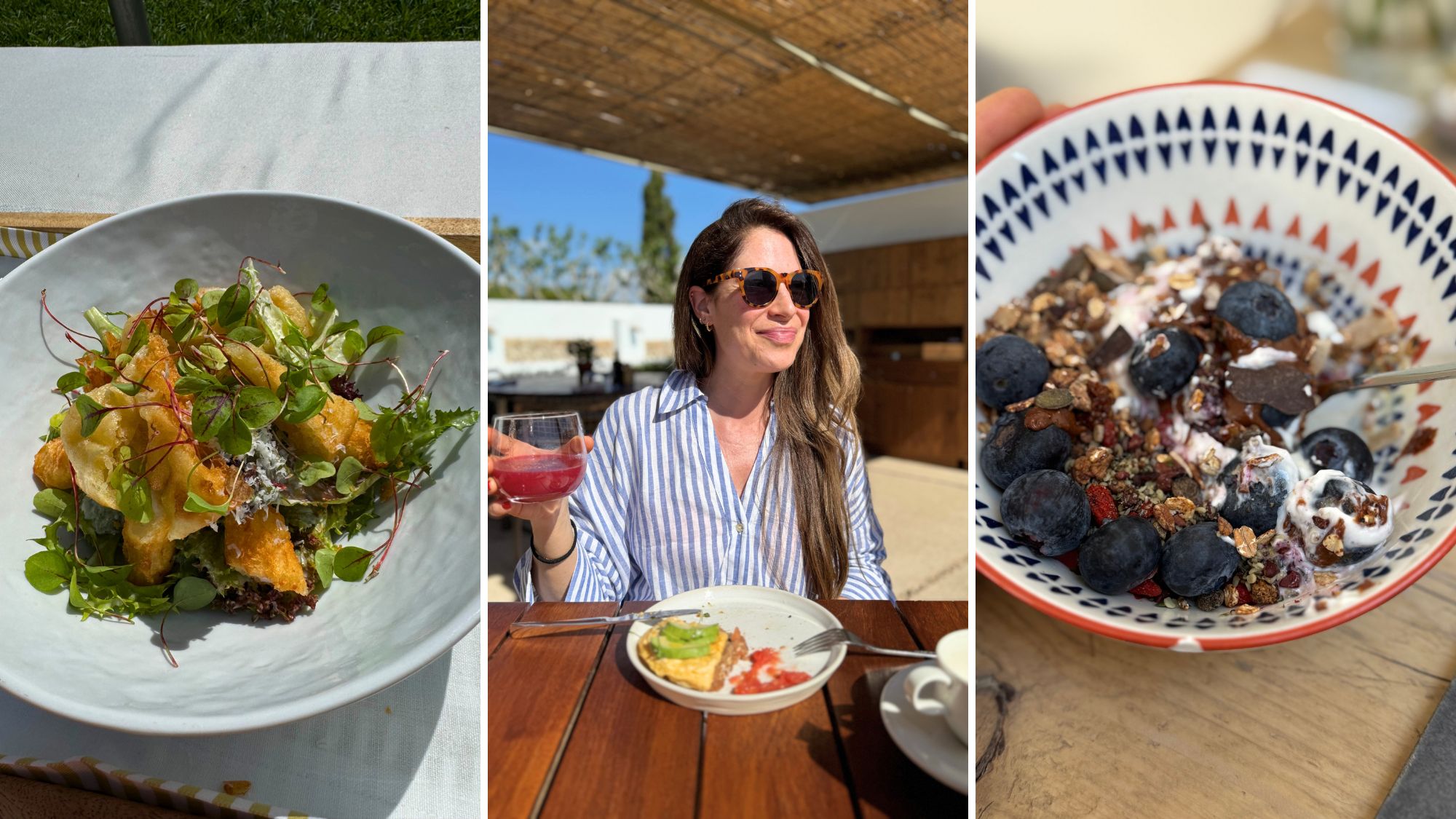

Anyone who knows me knows that I love food. I'm always planning at least one meal ahead, and don't even talk to me about the panic when there are no decent food options and my hunger starts to kick in. So, when I started to get fed up with my WFH lunches, I knew there was something wrong.
Despite its many other benefits, working from home isn't always synonymous with adventurous food options. Whereas in a former life, I'd have eaten my way around the globe in an average working week, for the past few years, my lunch plates have been lacklustre, at best, and (at times) downright boring.
And it wasn't just my lack of interest in lunch that was a problem. For years, I'd struggled hugely with bloating, discomfort and the dreaded 4 pm energy slump. Easy to blame on lack of sleep and a busy lifestyle, but was there more to it than that? As I learned more about nutrition, I started to think that maybe my symptoms were a result of a less-than-ideal meal plan.
While I've always had a healthy, balanced diet, as I hit my 40s, it was clear that something wasn't working for me anymore, and I was intrigued to find out what it was. I'd read up on the benefits of upping my protein (as a peri-menopausal woman, studies show that protein is vital for maintaining muscle mass) and after years of restriction around fats (thanks, 90s trends) I've long been on board with the benefits of healthy fats, with research showing that, contrary to what we were being told, higher-fat diets are not the enemy.
Keen to find out how I got on after deciding to swap my simple carb, sandwich-based lunch for a more balanced plate of wholegrains, protein and healthy fats? Keep scrolling. And for more nutrition content, don't miss our guides to the most common nutrition myths, plus the balanced nutrition tips that experts actually recommend following. We've also got explainers on the benefits of mindful eating, intuitive eating, and the best foods for your hormones, here. Need some recipe inspiration? Healthy breakfast ideas, healthy snack ideas, and healthy smoothie recipes, at the ready.
I’ve switched my lunch from simple carbs to protein, healthy fats and wholegrains - here's why I'd recommend
What are simple and complex carbs?
First up, a nutrition lesson for us all, in case you missed it at school (and let's face it - things have changed since then, right?)
Essentially, carbohydrates give us energy and are an essential part of any healthy, balanced diet. However, not all carbohydrates are created equal. But far from demonising carbs, though, we should instead be focusing on the type of carbs we're consuming for overall health and satiety. There are two main forms of carbohydrates: simple and complex. So, what's the difference?
Celebrity news, beauty, fashion advice, and fascinating features, delivered straight to your inbox!
"Simple carbs are typically quick-release energy sources, made up of one or two sugar molecules," explains nutritionist Clarissa Lenherr. "These include foods like white bread, pastries, sweets, sugary drinks and even milk. Because they’re digested rapidly, they can cause a quick spike in blood sugar followed by a sharp fall, which often leads to energy crashes, cravings, and brain fog.
"Complex carbohydrates, on the other hand, are made of longer chains of sugar molecules, and often contain fibre, vitamins, and minerals. You’ll find these in foods like brown rice, quinoa, oats, sweet potato, pulses, and wholegrain bread. They take longer to digest, providing a slower, steadier release of energy."
Why are carbs so important?
As touched on above, carbohydrates provide our main source of energy, and without them, our brains and bodies can start to feel sluggish.
"Carbs are our body’s preferred source of energy, helping us to feel energised and fuel physical activity and cognitive function," notes registered nutritional therapist and founder of ARDERE Wellbeing, Lauren Windas. "The body breaks them down into sugars, which we then use for energy. In addition, complex carbohydrates contain fibre, which acts as a buffer on blood glucose levels and helps to steady blood sugar levels when consumed. The fibre works to slow carbohydrate digestion and promote fullness and satiety."
What type of carbs should we be eating?
Ideally, we'll all be eating some carbs with every meal to maintain steady blood sugar levels and energy function, but we also know that simple carbs are a shortcut to brain fog and energy slumps. So, what should we be choosing instead?
"Simple carbs give us energy – that’s about it. Yes, they taste nice, but they are not usually particularly nutrient-dense," notes registered nutritional therapist Alex Allan. "By moving to include more protein, like meat, fish, tofu, eggs, and healthy fats, such as olive oil, oily fish, avocadoes, etc., we can rapidly increase the nutrient density of our plate, as well as helping us to feel fuller for longer.
"Healthy fats slow down the rate of digestion and absorption, helping to keep our blood sugars steady. Plus, eating protein and fats can stimulate signalling to our brain that we have had enough to eat."
As for carbohydrates? Wholegrains are where it's at. "Wholegrains release energy gradually, offering a slow and steady fuel supply," explains registered associate nutritionist Eli Brecher. "For anyone prone to sugar crashes, fatigue or cravings, swapping white bread for wholegrain bread, brown rice or bulgur can make a real difference in how they feel after their meal."
What are the benefits of swapping from simple to complex carbs and high-protein meals?
We all know that a well-balanced, nutritient-dense diet is one of the best ways to feel great, but what benefits are associated with a switch from simple to complex carbs? Let's dig in.
1. You'll feel fuller for longer
"Short term benefits of swapping from simple to complex carbs include increased levels of satiety, aka fullness, and more optimum blood sugar levels as the glucose, aka energy, tends to be released more slowly in comparison to refined carbohydrates," explains Nichola Ludlam-Raine, specialist registered dietician and author of How Not To Eat Ultra Processed.
2. Your energy levels will be more stable
Constantly fighting the 4 pm slump? Complex carbs are your BFF.
"Meals that are high in simple carbohydrates, especially when eaten alone, tend to be digested quickly, leading to a rapid rise and fall in blood sugar," notes Lenherr. "That rollercoaster can leave you feeling tired, hungry soon after eating, and craving more sugar or caffeine to get through the afternoon. Making a shift to complex carbs can have a noticeable impact on how you feel throughout the day."
3. You'll build and retain muscle mass
One for all of us peri- and menopausal girls, high-protein plates not only encourage satiety, but they're hugely beneficial for body composition, too.
"Protein is essential for maintaining muscle, supporting metabolism, and even neurotransmitter production, but also helps keep you full between meals," shares Lenherr. "Healthy fats also help to keep you full, whilst also supporting hormone production and brain health. Together, this type of meal can reduce energy crashes, improve concentration, support metabolic health, and help regulate appetite."
4. You may improve your longevity
"Longer term, eating more wholegrains is associated with living healthier for longer, reducing the risk of heart disease, stroke, type 2 diabetes and obesity as well as some forms of cancer, including bowel cancer," advises Ludlam-Raine. "Wholegrain foods provide both soluble and insoluble fibre, which is great for helping to keep you regular."
How I found swapping from simple to complex carbs, healthy fats and protein
Months one to three
Fed up of feeling, well, meh, way back in October 2024, I decided to switch up my diet to see if I could optimise my wellbeing. In addition to tweaking the timing of my meals (eating no later than 7 pm, as opposed to 9 pm), I totally overhauled the composition of my lunches. I'd always been pretty good at having a decent, protein-rich breakfast, but had fallen into poor habits of eating lunch either on the run or not at all - and when I did have a 'proper' lunch, I'd feel overfull and lethargic.
Having done some research, I realised that some of my symptoms could be down to peri-menopause. Studies (such as this one, undertaken by the University of Sydney) show that our body composition changes as we head towards menopause, and this can have an impact on our risk of developing cardiometabolic diseases. The answer? Step one: up my protein intake.
So, I started really focusing on incorporating high-quality proteins in my lunches (buddha bowls swiftly became my best friend) and I consumed more chickpeas, tofu, chicken and cottage cheese than in my whole life previously. However, it turns out that simply swapping carbohydrates for protein isn't the best idea, as I was left feeling hungry and low in mood.
Turning to the experts, it transpired that I likely wasn't eating enough fibre. Despite packing in the veggies, they advised including wholegrains as well to boost my intake.
"Wholegrains are a complex carbohydrate; therefore, for some people can be a better source of energy than refined grains," advises Allan. "The fibre in these foods can help with feelings of satiety – fibre makes us feel full. Adults should be having 30g fibre each day, but most people are not getting anywhere near that."
While I always add nuts and seeds to my lunch, it was high time I threw in some wholegrains too. And doing so transformed not only how I felt, but also how I performed, mentally and physically, too. Not only was I able to bring more energy to my favourite workouts, but I felt more focused in my afternoons at work - win, win.
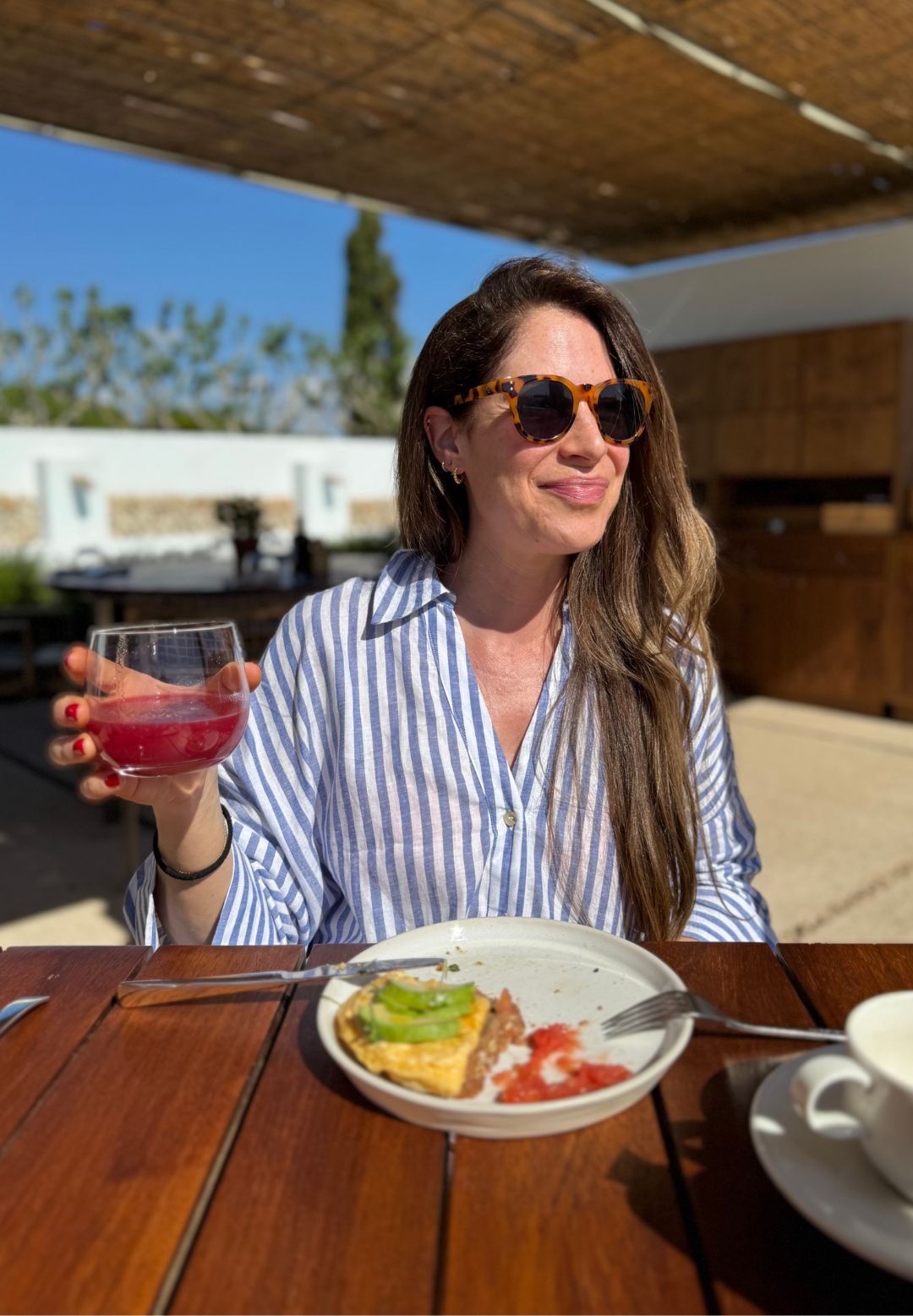
Health Writer Anna with one of the meals during her challenge - avocado, scrambled eggs and rye bread
Months four to six
By the time month four rolls around, I feel like I've found my stride. I know that not including some wholegrains in my bowl is a sure-fire way to guarantee I'll be raiding the biscuits come 3 pm (but I want to be very clear, here - I still do that sometimes too, and that's totally OK), so I make sure to include roasted sweet potato cubes, a pack of wholegrains, chickpeas (my favourite!) or a couple of slices of sourdough every day.
And my body seems to have settled into a routine now, too - for the first couple of months, I'll confess I struggled with still feeling hungry, but as I've tweaked my plate to ensure I've got all my nutritional bases covered, I'm feeling satisfied and energised all afternoon.
It's important to note, though, that we're all unique, and we all have individual nutritional needs and wants - so, my biggest takeaway has to be: you do you. The days that I know I'm training more, I'll focus more on quality carbs (pre-workout) and good protein (post-workout).
"An ideal meal will vary depending on someone’s lifestyle, activity levels, health goals, and dietary needs," agrees Lenherr. "Someone who’s highly active might need more carbs, while someone working on stabilising their blood sugar might do better with a lower-carb, higher-protein balance."
And no one is perfect: I don't follow an ideal diet 100% of the time. But while I still enjoy the occasional pizza, the way I feel afterwards reaffirms that my way of eating really is right for me and my body - and that's a lesson worth learning, in my opinion.
Shop MC UK's go-to nutrition essentials now:
What constitutes a "balanced" lunch?
If you're not sure where to start with a balanced, delicious homemade lunch, Brecher advises the following:
"An ideal balanced lunch plate would include a source of complex carbs (quinoa, sweet potato, brown rice), a serving of protein (tofu, chicken, eggs, chickpeas), some healthy fats (avocado, tahini, nuts, extra virgin olive oil) and plenty of colourful veg for fibre and antioxidants," she tells MC UK. "One easy option could be a quinoa salad with roasted vegetables, chickpeas, two boiled eggs and a drizzle of tahini.
"However, it's important to remember that each person’s nutritional needs are individual, and those with active lifestyles might require more carbs, while others feel best with a protein-rich plate. It’s all about tuning into your own energy and appetite."

Anna Bartter is a freelance journalist who writes about health, fitness and women's lifestyle for publications including Stylist, Metro and Psychologies, among others.
She's always on a quest to find a variety of fun and functional workouts that give you the most bang for your workout buck and she's passionate about championing movement for everyone's mental and physical wellbeing.
